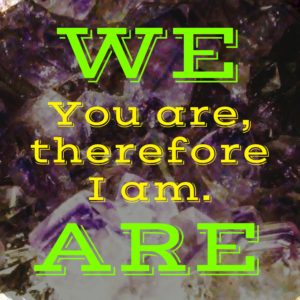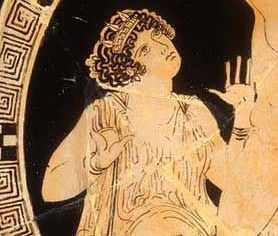Common Future Identity
Erikson’s ‘Golden Rule in the Light of New Insight’ Revisited
by Winslow Myers
Sixty years ago the psychoanalyst Erik Erikson gave a talk in India on the Golden Rule, a formulation that occurs, with some variation, in all the major religions. Judaism: “What is hateful to yourself, do not do to you fellow man.â€
 Islam: “No one of you is a believer until he desires for his brother what he desires for himself.†Christianity: “Do unto others as you would have them do unto you.†Erikson’s theme was the creative potential of mutuality — between spouses, parents and children, doctors and patients, teachers and pupils, even between nations. Mutuality, Erikson asserted, is a relationship in which partners depend upon each other for the enhancement of their respective strengths.  The curiosity of a student elicits from the teacher the skills for transmitting the excitement of learning in a way that benefits both teacher and student.
Islam: “No one of you is a believer until he desires for his brother what he desires for himself.†Christianity: “Do unto others as you would have them do unto you.†Erikson’s theme was the creative potential of mutuality — between spouses, parents and children, doctors and patients, teachers and pupils, even between nations. Mutuality, Erikson asserted, is a relationship in which partners depend upon each other for the enhancement of their respective strengths.  The curiosity of a student elicits from the teacher the skills for transmitting the excitement of learning in a way that benefits both teacher and student.
In the case of nations, fear of Hobbesian chaos if leaders relax their futile race toward military superiority makes it difficult to encourage mutuality. Ruthless power relations turn the life-giving spirit of mutuality on its head: do not even think of trying to destroy me because if you do I will destroy you. This paranoia rationalizes the unabated manufacture of ever more destructive weaponry, irrespective of sensible policy goals, by ever more powerful corporations. (more…)
 I froze, wanting the Monarch to stay with me as long as possible, and watched with total fascination and delight as it balanced on my warm brown skin and enjoyed the salty treat I had to offer.
I froze, wanting the Monarch to stay with me as long as possible, and watched with total fascination and delight as it balanced on my warm brown skin and enjoyed the salty treat I had to offer.




